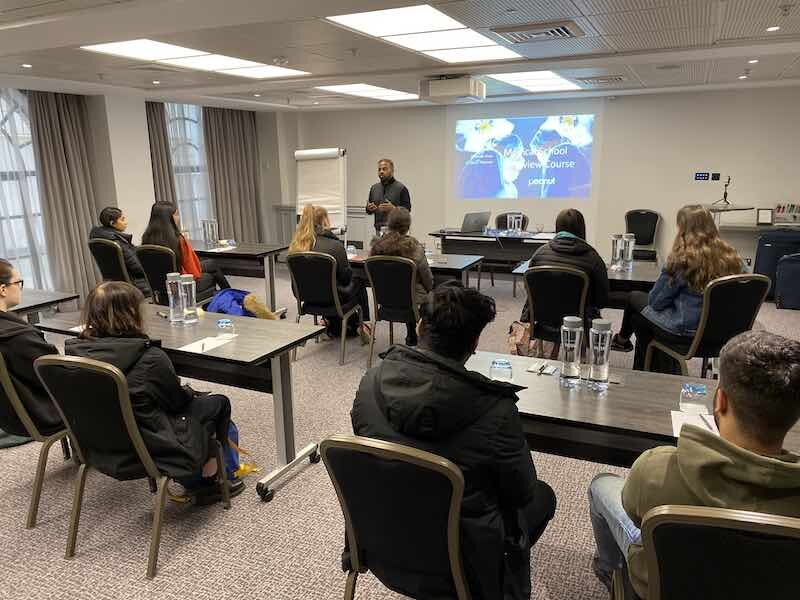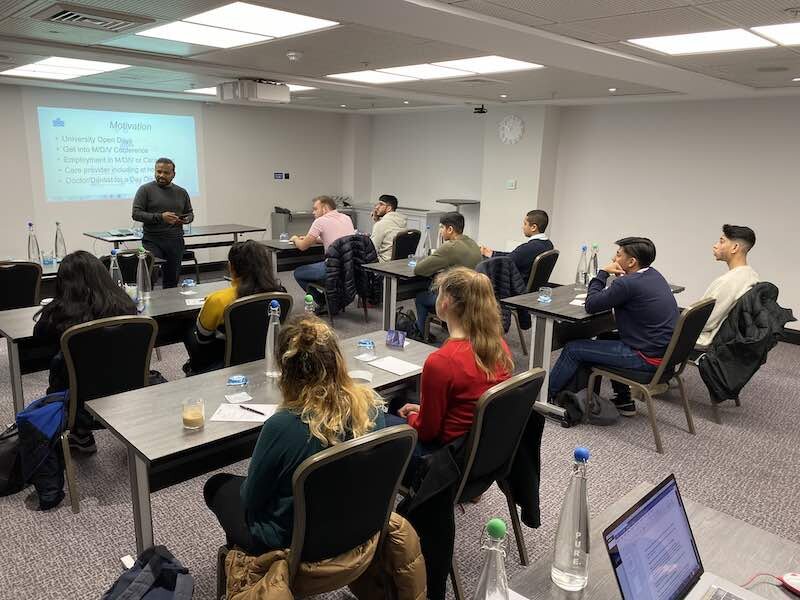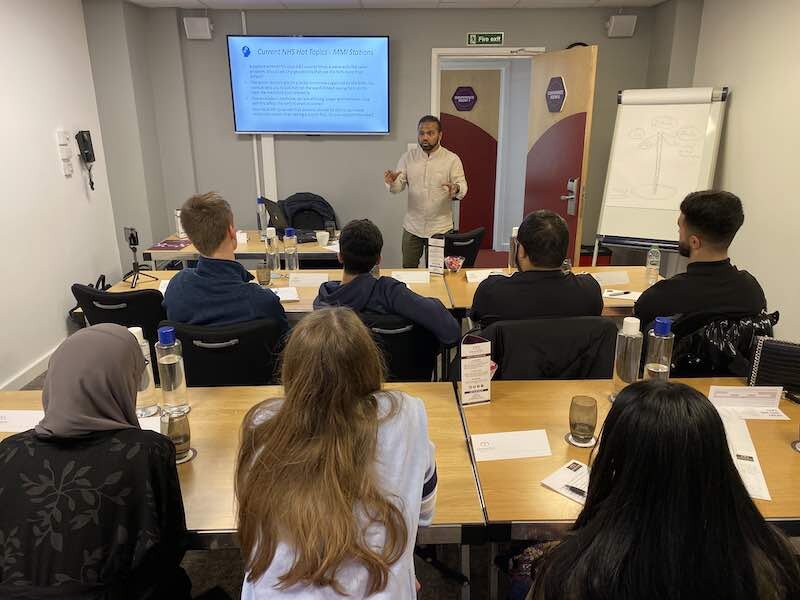The St George's Medical School Interview – MMI STATIONS REVISION
Let’s have a look at the St George’s clearing interview – it is likely to be the same as the interview done earlier in the year. Please note this article was written for 2019 entry. Please check the medical school website for updates. Public information is available at: -
https://www.sgul.ac.uk/study/undergraduate/undergraduate-courses/medicine-mbbs/application
We are told there are up to 8 stations, with each being 5 minutes in duration. This is shorter than usual and therefore you will need to able to answer questions on the spot with almost no time for thought or reflection. They give you a significant amount of information about the interview on their web site. They tell you key competencies being assessed are: -
Academic ability and intellect
Empathy
Initiative and resilience
Communication skills
Organisation and problem solving
Team work
Insight and integrity
Effective learning style
They also give you example stations: -
Pack a suitcase for a trip, where the case can only contain half of the items available
This is an example of a triage station, where you have to make decisions based on limited resources. Note, as in this case, the subject does not have to be medical.
It is tempting to just go through them one by one and some students will do just this. However, it is unlikely you will have time to go through every item so you will have to give priority to the ones you feel are more critical - this is deliberate on the part of the examiners. Note also you will need to present your findings to the examiner in a clear and consise manner.
We have similar questions on our medical school interview course. We teach you how to approach such questions which you can then practice with your fellow students.
Travelling on the London Underground, one of your friends has become separated from the group – it’s their first time in London – describe your plan of action.
This is an example of an organisational and problem solving station.
You have a list of 15 individuals, giving their sex, age and occupation – you can save five of them from nuclear attack – which five and why?
Again, an example of a triage station; this time the subject is medical. 15 individuals for review in 5 minutes? Come and learn how in our interview course and then practice with a medical school tutor so you are ready for the real thing.
As captain of a football team, inform a member of your team that they have not been selected to play in the final
This is an example of where you have to break bad news. It appears from the way this is worded there will be an actor simulating the rejected team member. You need to know not just the theory behind breaking bad news but how to apply your knowledge face to face in person. Note the subject here is (yet again) not medical.
Actors can be professional, sometimes from local theatre groups. They will respond in a certain predictable way. We teach this skill on our interview course.
Inform your neighbour that you have just (accidentally) run over and killed their cat
This is what we call a ‘duty of candour’ station. Doctors are expected to admit their mistakes and importantly be able to attempt to resolve the situation. There are several steps to this and you will likely need to do them all in order to get full marks.
There are also mentions on other parts of the St George’s website that you should expect questions on motivation and work experience.
Lets have a look at these topics in more detail
Have an interview at St George’s Medical School coming up? Come on our Medical School Interview course and gain the knowledge and skills you need to get an offer.
The photos below are from past Medical School Interview Courses pre COVID.
WORK EXPERIENCE AND QUALITIES OF A DOCTOR
They have indicated that there is a large emphasis on work experience. Usually medical schools at not just looking for what you have observed, but also what you have learnt from your observations and how you can demonstrate some of the qualities of a doctor. They can also ask, in an almost indirect way, how work experience has prepared you for being a medical student.
DUTY OF CANDOUR
The ‘running over the cat’ type scenario, where you have done something wrong, is increasingly being used. It sounds as though how this has been written that there will be an actor simulating the person who has been wronged. Where students make a significant error is by not trying to put things right, as this as part of the duty of candour. The actor will likely be very persuasive and make you go round in circles. You cannot reverse the death of this cat but think about how you can resolve this dispute! Also remember to strict to the facts (which you have been given) and don’t forget to demonstrate empathy!
These are all skills that can be taught - come and learn them on our medical school interview course.
TRIAGE, INITIATIVE AND RESILIENCE
Lets look at the triage type stations. They have given you two examples. In each one there is a ‘list’ and you have to select a limited number of items that best fits the scenario. The list can be medical – as list of patients for example – or non-medical. Medical schools are getting more innovative in what they use as ‘lists’. They also like to use ‘accidents’ in which are on your own with a limited number of ‘items’ to choose from. In 5 minutes you will have very little time to think and the list can be as long as 15+ items. They is usually no absolute correct answer and you will have to justify each choice.
TEAM WORKING
Team working is shown in the list of competences being assessed. This is important as medical students will have to work well as a team, for example during PBL sessions, as well as on their own. There is no time in a 5-minute station to hold a meaningful group exercise. I also doubt they will show you a video (in which there is usually a team that has broken down). It is likely they will ask you to talk about team dynamics and what perhaps makes a good or dysfunctional team and how you can correct problems. They could also talk about leadership and your own personal qualities.
EFFECTIVE LEARNING STYLE
Whilst we are on the topic of PBL, learning style if mentioned in the list of qualities that are assessed. St Goerge’s has a whole webpage relating to teaching and assessment methods: -
https://www.sgul.ac.uk/study/undergraduate/undergraduate-courses/medicine-mbbs/studying
Universities usually ask questions about the pros and cons of PBL, self directed learning and will try and gauge if you are the type of student that can adapt to undergraduate medical education which is a huge leap from sixth form learning. Know the St George's site inside out.
They have indicated they may give you an organisational and problem solving station. It is getting less likely that they will use ‘drug dilution’ as they will expect candidates to have prepared for this particular scenario.
MOTIVATION FOR MEDICINE AND CHOICE OF MEDICAL SCHOOL
Expect a question on motivation for medicine and why you have chosen St George’s medical school. Think very carefully about this if you have applied through clearing. Medical schools don’t always ask this directly, for example they can ask why you did not choose an alternative career or why they should choose another candidate (instead of you).
I hope this helps your interview preparation and good luck!
Blue Peanut has successfully helped students obtain places at medical school through UCAS clearing. If you have an interview coming up through UCAS clearing and need urgent interview training, we may be able to offer you tuition over Skype.
If you are applying through the normal UCAS process in October, have a look at our medical school interview course. Over 98% of our students obtain an offer, with an increasing number having 3 or 4 offers.
Gain confidence and experience in the topics that are assessed at St George’s and other UK medical schools. Come to our Medical School Interview Course



